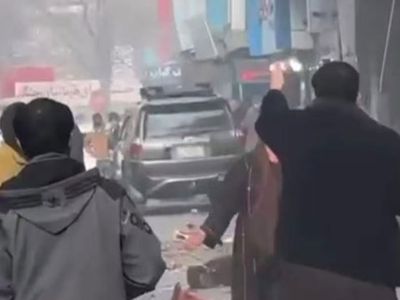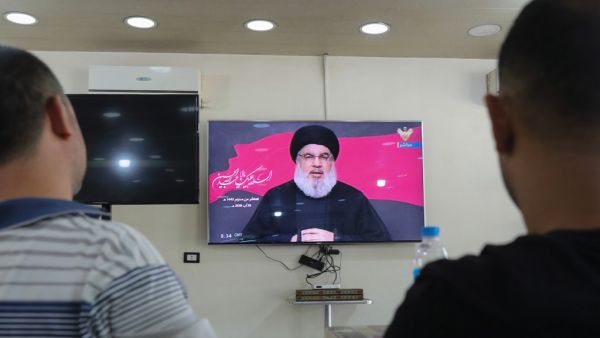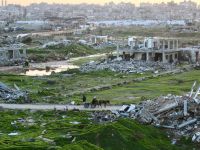A senior official from Hamas met Sunday with Hezbollah chief Sayyed Hassan Nasrallah to discuss ways to resist US President Donald Trump’s ongoing campaign promoting normalization with Israel.
The head of Hamas’ political bureau Ismael Haniyeh is in Lebanon to shore up the Arab and Islamic stance toward Israel following a landmark deal announced Aug. 13 between Israel and the United Arab Emirates toward the “full normalization of relations.”
Hezbollah Sunday released a statement saying that Nasrallah and Haniyeh discussed the “development of cooperation and coordination mechanisms between the two parties" during their meeting.
It said that the relationship between the two armed groups was “based on the foundations of faith, brotherhood, jihad and common destiny.”
During Haniyeh’s visit to Lebanon, his first in 27 years, he also met Sept. 2 with acting Prime Minister Hassan Diab in a meeting Haniyeh described as “positive.” The Hamas political chief also met with Parliament Speaker Nabih Berri.
While in Beirut, Haniyeh also took part in a virtual meeting with other Palestinian leaders in a rare show of unity to underline their rejection of the US-backed normalization deal between Israel and the UAE.
The meeting was the first since 2013 bringing together President Mahmud Abbas, head of the mainstream Fatah party and West Bank-based Palestinian Authority, and Haniyeh -- albeit virtually, rather than in the same room.
"We cannot accept anyone speaking in our name. We have never allowed it, and we will not allow it, ever," Abbas said at a meeting in the West Bank town of Ramallah beamed live by videoconference to a parallel meeting held at the Palestinian embassy in Beirut.
"We will never accept the United States as the sole mediator for negotiations (with Israel), and we will not accept its plan" for a peace settlement, said Abbas, calling for Palestinian "unity" in the face of Washington's strategy.
Haniyeh, whose rival movement controls the Gaza Strip, also called for a united front, via videoconference from Beirut.
"We must restore our national unity, put an end to division and establish a unified Palestinian position... to confront projects directed against our people," said the Hamas chief.
On August 13, US President Donald Trump announced an agreement between Israel and the United Arab Emirates to normalize ties under which the Jewish state suspended, but not permanently dropped, annexation plans in the West Bank.
The UAE became the third Arab country to agree to normalize ties with Israel, after Egypt signed a peace deal in 1979 and Jordan followed suit in 1994.
The Palestinians have roundly condemned the accord as a "betrayal" by Abu Dhabi of the struggle to establish a state of their own, incorporating territories seized by Israel in the 1967 Middle East war, with east Jerusalem as its capital.
In a final communique released after the talks, the Palestinian factions announced they had approved the creation, within five weeks, of a joint committee to organize "the popular resistance" and "put an end to the divisions" between themselves.
This article has been adapted from its original source.










